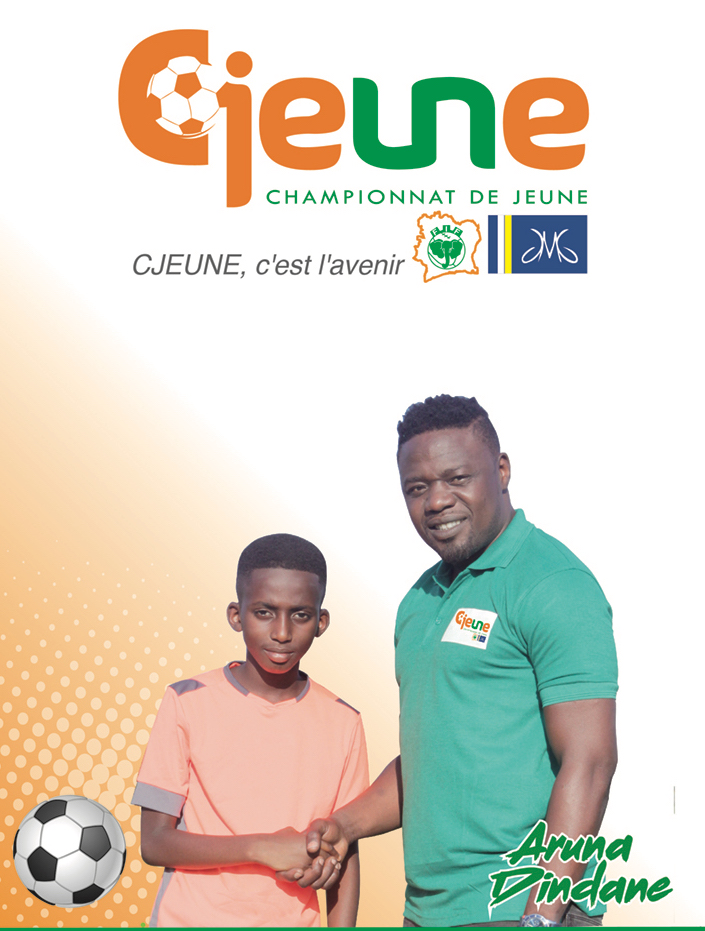Africa is a land of football. Everyone knows that, except apparently some football leaders. Convinced that the best way to do well in international youth competitions was simply to catch up on the maturation gap of young Africans by influencing their age, this bad habit will prove catastrophic in terms of training.
No more questions about training. For many managers, it is still enough, even now, to rely on the strength and physical qualities of players at least 4 years younger to have a say in international youth competitions.
This bad habit has become almost cultural, not only in Africa, but in all the countries where this practice was made possible.

With the “CJeune” project, sub-Saharan Africa should find solutions to the various problems of their football. These problems can be translated into three questions:
1 – How to fight against age cheating?
2 – How to set up mass football in their country?
3 – How to establish a real traceability of players in clubs?
Clear and precise answers to these three questions are vital for the future of football in these countries. However, the “CJeune” project provides the right answers to these three questions.
1 – Age cheating: We must no longer compete with age as the main criterion. Competitions must be held with weight as the main criterion. Age or date of birth must, of course, follow the individual, as international competitions are ultimately based on age. But you have to start with the smallest categories, collect dates of birth and make biometric virtual cards with fingerprints.
2 – Mass Football: The establishment of mass football is decisive for the future of football in these countries. It is mass football that creates a dynamic for a football. Austria 8 million inhabitants 400,000 licensed Ivory Coast 25 million inhabitants 15,000 licensed (look for the error). On the one hand, there is a social and human goal to keep thousands of children healthy, and it is from mass football that talents emerge or are revealed.
This will require several things:
(a) facilitate club formation: “CJeune” has done so;
b) charge all members of Mass Football (clubs, managers, players,) because organising these competitions properly will require a lot of resources: CJeune does it;
c) use computers by creating a database and the necessary applications to use it: CJeune is in the process of doing so;
d) have patience because it will take time: “Young” has the patience of long projects;
3 – Traceability: the use of IT will make it possible, in addition to managing memberships, competitions and information, to make known with extreme speed and precision what the curriculum of a player being transferred has been. There is also no possibility of scheming. On the contrary, make sure to reward deserving clubs.
Thus in 4 to 10 years time “CJeune” plans to have between 400,000 and 1,300,000 members, and that the country has 6 to 8 Structures of Excellence (SE) where the best talents will be directed to be trained from an early age. These “SE” will have to work with the philosophy, methodology, IT tools and rules of the JMG academies. This will certainly guarantee the right formation and especially future club teams capable of competing within 10 years with the best clubs in the world.
Of course, all this will not happen without some disruptive people screaming at the scam. The former President of ASEC is one of them. This morning, on 15/11/2018, he chose this day of peace in Cote d’Ivoire to sharpen his knives, except that he would do well to keep quiet as he himself was suspended from all business in football. To give him an initial answer on the fact that he accuses me of trafficking in minors for years by bringing Ivorian players to our training structure in Mali, I can reply that:
their arrival in Mali was made with the agreement of the parents;
these players had no contracts with Ivorian clubs;
the parents have all signed a training contract with our structure;
and, icing on the cake, many of them had been refused by the ASEC Academy.
Five of these players have now joined or are still in the first division in France, because their parents have chosen our training structure.
Concerning the “CJeune” project, the same former President denounces the fact that a town hall cannot get financial returns by investing in one or more clubs in its town. This is a matter between the town hall and these clubs. What is certain is that it will only be from the clubs that financial returns can be granted in accordance with the FIFA rules on the solidarity mechanism.
I can even assure all readers of this article that this mechanism is well known to this former President who has taken advantage of it for years on most of the players trained under my direction.
Concerning the possible financial benefits before the age of twelve, this will be a proposal for a text because, in our opinion, training begins before 12 years and ends before 23 years. It is therefore quite normal to think that we have to restore what will promote training and all the small clubs in the country.
But the dogs bark and the caravan passes by.
In any case, let us congratulate President Sidi DIALLO and his Executive Committee for having made it possible for the “CJeune” project to come into being.








